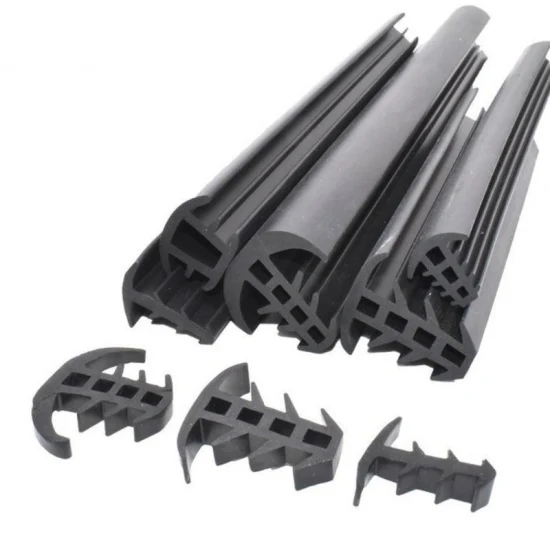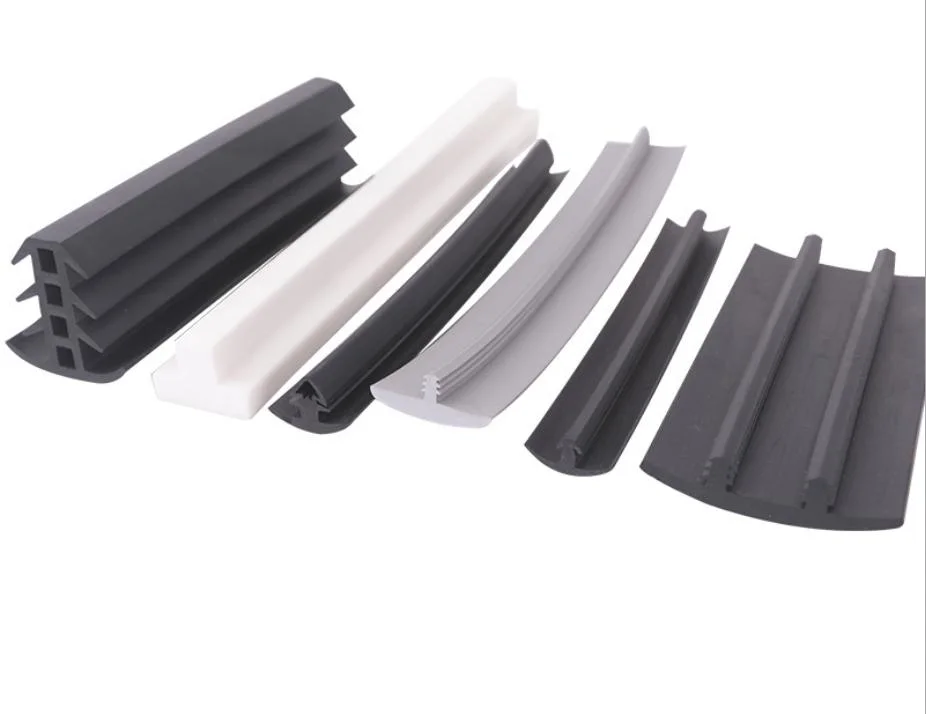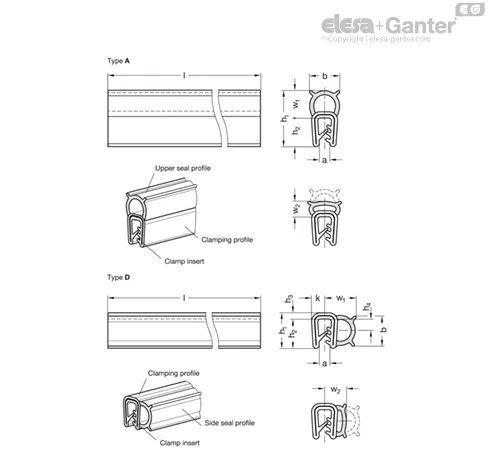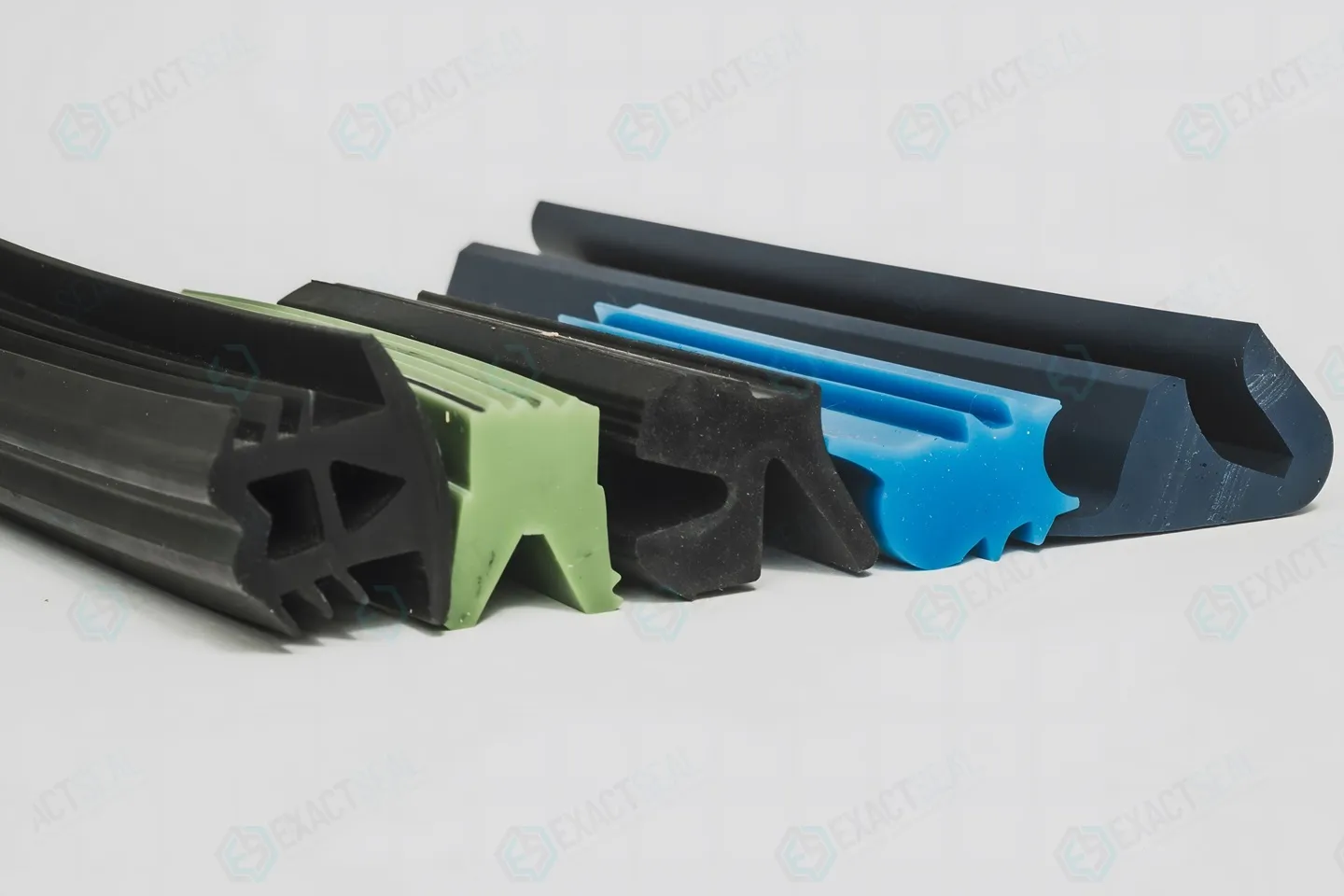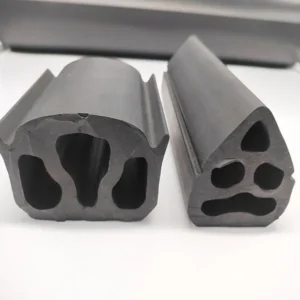EPDM Seal Profiles
EPDM Seal Profiles
Our EPDM seal profiles offer unmatched performance for sealing applications across industries. Designed for durability and flexibility, these profiles provide excellent weather resistance, UV and ozone protection, and maintain elasticity even under extreme temperatures. With options like L-shape, lip seals, and custom profiles, they ensure superior waterproofing, windproofing, and insulation. Whether for construction, automotive, or appliance applications, EPDM seals deliver reliable, long-lasting solutions to prevent leaks, block noise, and resist environmental wear.
- Outstanding Weather Resistance: Performs reliably in rain, snow, and sun
- UV and Ozone Resistant: Won’t crack, fade, or deteriorate under prolonged exposure
- Temperature Flexibility: Maintains elasticity from -40°C to +120°C (-40°F to 248°F)
- Excellent Waterproofing & Insulation: Prevents leaks and ensures energy efficiency
- Durable and Low Maintenance: Long service life with minimal upkeep
- Versatile Applications: Suitable for windows, doors, roofs, vehicles, and more
- Customizable Profiles: Available in various shapes and sizes to fit specific needs
Details About EPDM Seal Profiles
Details About EPDM Seal Profiles
Product Description
EPDM seal profiles are made from high-quality Ethylene Propylene Diene Monomer (EPDM) rubber, known for their outstanding performance in harsh environments. This material offers excellent weather resistance, UV and ozone protection, and retains its elasticity and sealing capabilities across a wide temperature range.
Our EPDM seal profiles come in a variety of designs, including L-shaped, lip seal, corner profiles, and self-adhesive types, suitable for a wide range of sealing applications. They provide effective waterproofing, windproofing, and soundproofing solutions, helping to protect equipment and structures from environmental damage and extending their service life.
Application
EPDM seal profiles are widely used across various industries and applications:
- Construction Industry
- Sealing windows and door frames
- Filling gaps in curtain wall systems
- Edge sealing for roofs and skylight systems
- Waterproof seals for shower enclosures and bathroom fixtures
- Automotive Industry
- Sealing car doors and windows
- Edge seals for hoods and trunks
- Dustproof and vibration-damping components
- Home Appliances (e.g., Refrigerators and Freezers)
- Door seals for refrigeration units
- Anti-condensation and energy-saving seals
- Internal temperature control system sealing
These examples highlight the superior waterproof, windproof, and insulation performance of EPDM, making it the ideal choice for various industrial sealing projects.
Common EPDM Seal Profiles Materials
In façade and industrial sealing applications, the following materials are commonly used:
- EPDM (Ethylene Propylene Diene Monomer Rubber)
- Advantages: Excellent weather resistance, ozone resistance, and durability
- Disadvantages: Limited resistance to certain oils and chemicals
- Silicone Rubber
- Advantages: High-temperature resistance, UV stability, and flexibility
- Disadvantages: Lower tear strength, not suitable for high mechanical stress environments
- PVC (Polyvinyl Chloride)
- Advantages: Low cost, ideal for indoor applications
- Disadvantages: Not suitable for prolonged exposure to high temperatures or UV rays
- TPE (Thermoplastic Elastomer)
- Advantages: Recyclable and highly flexible
- Disadvantages: Less resistant to weather and chemicals compared to EPDM or silicone
EPDM stands out among these materials for its superior weather resistance, elasticity, and low maintenance needs, making it the top choice for façade sealing and industrial applications.
Discuss the details of
your seal solution
Submit Your Inquiry to Primesealsolution,
All the Inquiries Will Be Replied Within 12 Hours.
More Rubber Seals Support Your Project
More Rubber Seals Support Your Project
FAQ For Rubber Seals
FAQ For Rubber Seals
How to Choose the Right Material?
Customers often ask how to select the appropriate material based on their working environment (e.g., high temperature, low temperature, chemical corrosion). Common materials include EPDM, silicone, nitrile rubber (NBR), and fluororubber (FKM), each offering specific resistance properties for different applications
What Temperature Range Can the Seal Handle?
Customers often ask how to select the appropriate material based on their working environment (e.g., high temperature, low temperature, chemical corrosion). Common materials include EPDM, silicone, nitrile rubber (NBR), and fluororubber (FKM), each offering specific resistance properties for different applications
What Are the Key Points to Ensure Proper Installation?
Proper installation is crucial for performance, and customers want to know how to keep the surface clean, avoid over-stretching, and whether to use lubricants for easier installation
What Should I Do if the Seal Ages or Fails?
Over time, seals may crack or deform. Customers often inquire about how to identify these issues early and use rubber rejuvenators to prolong their lifespan or properly replace failed seals
What Should I Do if the Seal Ages or Fails?
Over time, seals may crack or deform. Customers often inquire about how to identify these issues early and use rubber rejuvenators to prolong their lifespan or properly replace failed seals
Are Rubber Seals Environmentally Friendly?
Clients in eco-focused industries may ask about the material’s recyclability and environmental compliance, especially for projects aligned with green building certifications
How Can I Extend the Seal’s Service Life?
Customers are interested in maintenance tips such as choosing suitable materials, regular cleaning, avoiding overloading, and ensuring proper use to maximize durability

